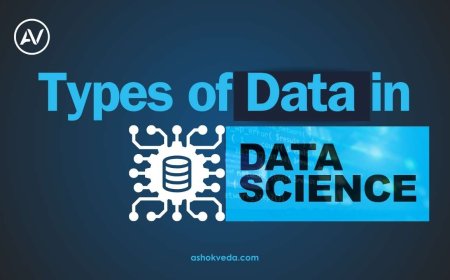The Power of AI for Cybersecurity
Discover how AI is revolutionizing cybersecurity by leveraging its power to detect, prevent, and respond to evolving cyber threats

The importance of strong cybersecurity measures has never been higher. The incorporation of artificial intelligence (AI) is a powerful tool in strengthening cybersecurity defenses and protecting digital infrastructures from increasingly sophisticated cyber threats. AI's impressive ability to quickly identify anomalies, analyze vast amounts of data, and adjust to the ever-changing security landscape has firmly established its crucial role in safeguarding sensitive information and reinforcing the resilience of digital ecosystems. As cyber threats become more complex and widespread, AI's swift threat detection and adaptive response mechanisms have become invaluable in maintaining the integrity of digital systems, making it an essential tool for ensuring the security and stability of our interconnected digital world.
AI has the potential to revolutionize cybersecurity, but there are also important ethical considerations to keep in mind. Malicious actors could exploit AI, and ensuring data privacy can be complex. Additionally, AI systems require a lot of energy, which can have environmental impacts. To prevent misuse of AI, it's important to prioritize ethical considerations and implement strong security measures. Balancing effective cybersecurity with sustainable practices is key to responsible AI deployment in the field of cybersecurity.
When integrating AI for cybersecurity, there are several important factors to keep in mind.
-
Ethical Considerations:
Ethical implications arise from the potential misuse of AI for cybersecurity, emphasizing the need for responsible AI development and deployment to ensure that AI-driven security measures align with ethical standards and respect individual privacy rights.
-
Malicious Exploitation:
There is a growing concern that malicious actors can exploit AI itself to launch sophisticated cyberattacks, highlighting the necessity for robust AI defenses and proactive measures to prevent AI manipulation and misuse.
-
Data Privacy and Compliance:
Data privacy and regulatory compliance are essential aspects of AI-driven cybersecurity. Implementing robust data protection measures and ensuring compliance with data regulations are crucial to maintaining trust and protecting sensitive information.
-
Energy Efficiency and Sustainability:
The energy-intensive nature of AI systems raises concerns about their environmental impact and sustainability. Emphasizing the development of energy-efficient AI algorithms and promoting sustainable practices in AI infrastructure can help minimize the carbon footprint associated with AI-driven cybersecurity initiatives.
In light of these challenges, how can AI be effectively harnessed to enhance cybersecurity measures and protect digital infrastructures from evolving cyber threats? What ethical considerations and regulatory frameworks are essential to ensure the responsible deployment of AI in cybersecurity? How can the integration of AI in cybersecurity initiatives align with environmental sustainability goals, fostering a more environmentally conscious approach to digital security?
Advanced Threat Detection and Prevention:
AI can continuously monitor network activities and swiftly detect anomalies and potential threats through machine learning algorithms and behavioral analysis, enabling proactive threat prevention and timely response to security breaches.
-
AI-driven threat detection systems, such as Intrusion Detection Systems (IDS), can analyze network traffic patterns and identify deviations that may indicate a cyber-attack. They can issue alerts or take immediate action to thwart attacks.
-
Behavioral analysis AI can detect insider threats by monitoring users' actions and recognizing unusual or malicious behavior patterns that may be indicative of data theft or sabotage.
Intelligent Data Analysis and Risk Assessment:
AI-driven analytics can assess cybersecurity risks and vulnerabilities comprehensively, facilitating personalized security protocols and tailored risk mitigation strategies to enhance cybersecurity resilience.
-
AI can perform in-depth analysis of historical cybersecurity incidents to identify common attack patterns and vulnerabilities, allowing organizations to proactively address these weak points and reduce the likelihood of future breaches.
-
User and entity behavior analytics (UEBA) powered by AI can identify patterns of user activity that may indicate a compromised account or an insider threat, allowing for rapid intervention.
Automated Incident Response and Remediation:
AI-powered automation streamlines incident response processes, allowing organizations to rapidly address security breaches and minimize the impact of cyber-attacks through autonomous threat remediation.
-
Security orchestration and automation platforms (SOAR) driven by AI can automatically contain and mitigate threats. For example, they can isolate infected devices from the network or reset compromised user credentials.
-
AI can autonomously respond to Distributed Denial of Service (DDoS) attacks by diverting traffic away from targeted servers, effectively thwarting the attack without human intervention.
Ethical AI Integration and Data Privacy Protection:
Implementing robust data privacy measures and ethical guidelines is essential to ensure the ethical integration of AI in cybersecurity, prioritizing data protection and transparency to build trust in AI-driven cybersecurity solutions.
-
GDPR and similar data privacy regulations have set standards for data protection, requiring organizations to implement data anonymization and encryption techniques in AI-driven cybersecurity systems to protect user information.
-
Ethical AI frameworks promote transparency and accountability in AI systems, ensuring that users understand how their data is being used and empowering them to make informed decisions about their privacy.
Regulatory Compliance and Accountability:
Establishing regulatory frameworks and accountability mechanisms is crucial to promoting the responsible deployment of AI in cybersecurity, ensuring adherence to ethical and legal obligations in safeguarding sensitive data and protecting digital assets.
-
Regulations such as HIPAA in healthcare and PCI DSS in the payment card industry mandate specific cybersecurity measures to protect sensitive data, including the use of AI for threat detection and data encryption.
-
Regulatory compliance also helps in creating a uniform set of best practices and standards for AI-driven cybersecurity, ensuring that organizations have a common baseline for protecting data.
Energy-Efficient AI Infrastructure and Sustainable Practices:
Adopting energy-efficient AI infrastructure and promoting sustainable practices in AI deployment can reduce the environmental footprint of cybersecurity operations, aligning with environmental sustainability goals and fostering eco-friendly digital initiatives.
-
The deployment of energy-efficient AI hardware and the optimization of data centers have led to significant reductions in energy consumption and carbon emissions in the tech industry.
-
The integration of renewable energy sources such as solar and wind power for AI operations not only reduces the carbon footprint but also contributes to the overall sustainability of digital ecosystems.
In summary, the integration of AI in cybersecurity serves as a crucial defense mechanism against the ever-evolving landscape of cyber threats. By leveraging AI's capabilities in threat detection, data analysis, and incident response, organizations can strengthen their cybersecurity defenses and protect their digital assets from malicious attacks. However, it is imperative to address the ethical implications and regulatory considerations associated with AI-driven security measures, ensuring the responsible and transparent deployment of AI in cybersecurity practices. Furthermore, promoting sustainable AI infrastructure and energy-efficient practices can contribute to a greener and more environmentally conscious approach to digital security, fostering a sustainable and secure digital ecosystem for the future.





































